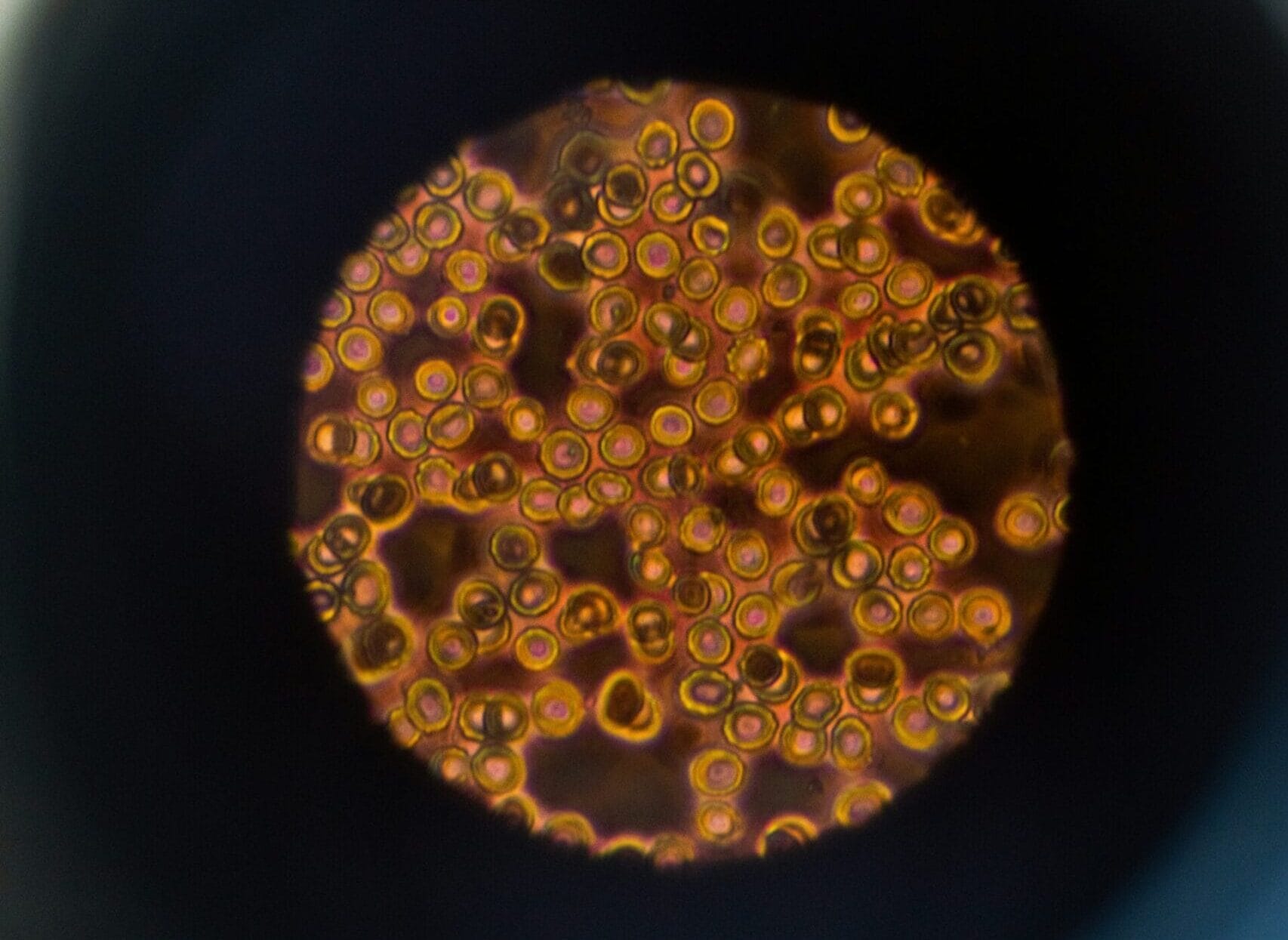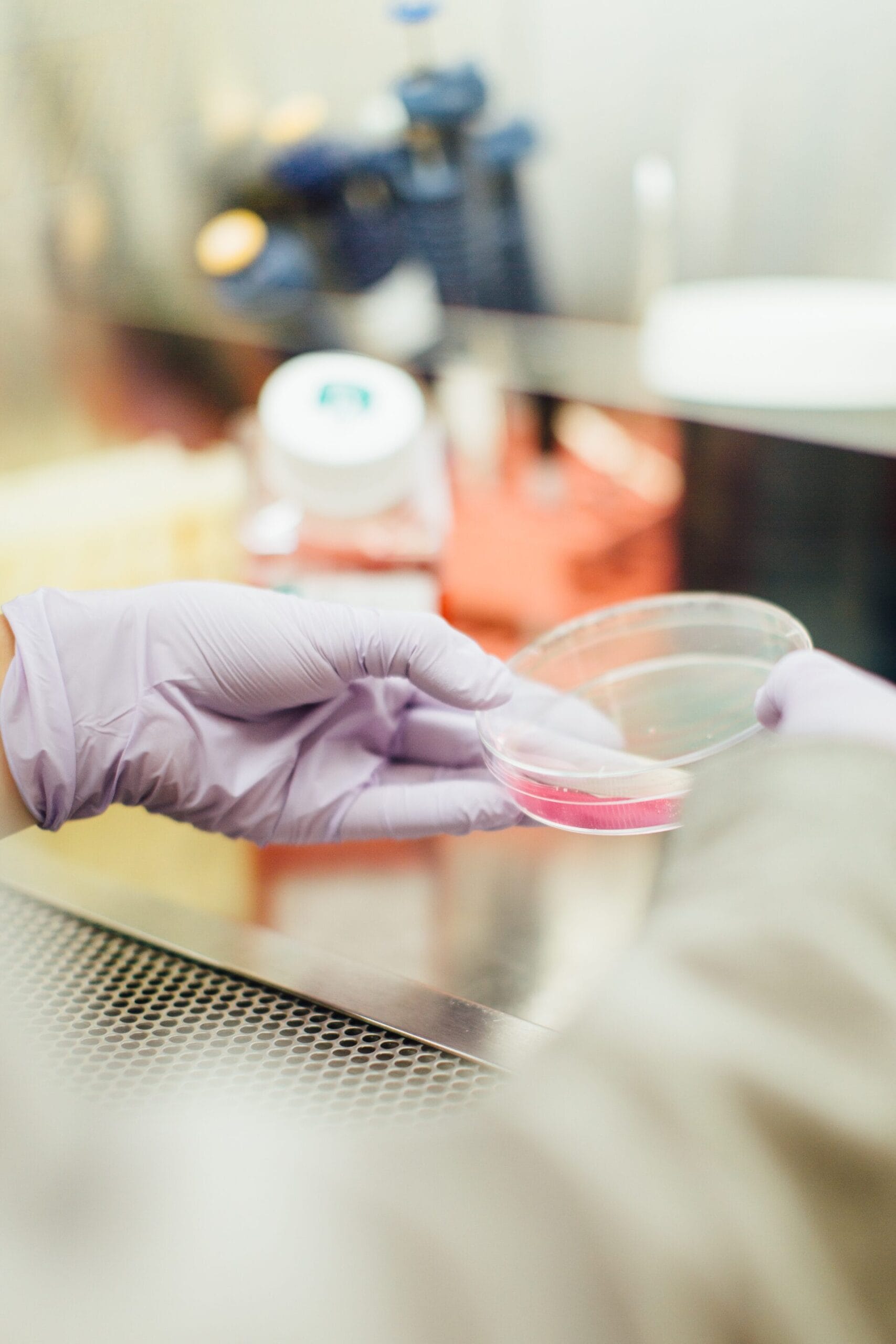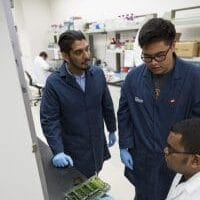
Microbial communities

Microbial communities
ASU LightWorks coordinates an interdisciplinary network of researchers within the microbial communities to addresses high impact opportunities to enable and advance the production of sustainable fuels and products to meet society’s grand energy challenges. LightWorks coordinates and develops strategic collaborations between our researchers and new potential partners.
Microbial communities addresses thematic areas of research including algae and cyanobacteria, carbon dioxide capture, artificial photosynthesis, life cycle and techno-economic assessment, photosynthetic factories and microorganisms.
Laboratories

Torres Laboratory @ SCEB
The Torres Lab, part of the Swette Center for Environmental Biotechnology, focuses on microbiological technologies that provide energy or high value chemicals to society. Our goal is to make use of microorganisms and their complex enzymatic machinery to carry out reactions that are difficult or impossible through any other known chemical route. Our main research topics are microbial electrochemistry, fermentations, and photosynthetic production of biofuels.

Krajmalnik-Brown Laboratory @SCEB
The Krajmalnik-Brown Laboratory uses strong microbiological skills, genomic techniques, and environmental engineering to carry out research in biodegradation of water contaminants, such as nitrate, perchlorate and chlorinated organics, biotechnology for renewable bioenergy production and microbial ecology in the human gut and its relationship with human diseases.
Algae news
Hydrothermal Processing: The ultimate carbon conversion unit for our future water resource recovery facilities?
There’s never been a more exciting time to be in the wastewater industry than now, because of the high level of activity occurring in terms of caring for our waterways, being more efficient, reducing our carbon footprint, and recovering more resources than ever from our waste streams.
Removal of Dissolved Organic Carbon and Nutrients from Urban Wastewaters
This field study confirmed that microalgae (Galdieria sulphurariawas) has the ability to remove organic carbon and nutrients from filtered primary-settled urban wastewater.
Algal-Based, Single-Step Treatment of Urban Wastewaters
This study presents a single-step process based on mixotrophic metabolism for simultaneous removal of carbon and nutrients from urban wastewater.
Maximizing Recovery of Energy and Nutrients from Urban Wastewaters
This study proposes an integrated, algal-based system that has the potential to treat urban wastewater to the desired discharge standards in a sustainable manner while recovering high fraction of its energy content as well as its contents for use as fertilizers.
High Resolution FT-ICR Mass Spectral Analysis Of Bio-Oil And Residual Water Soluble Organics
We report a detailed compositional characterization of a bio-crude oil and aqueous by-product from hydrothermal liquefaction of Nannochloropsis salina by direct infusion Fourier Transform Ion Cyclotron Resonance Mass Spectrometry (FT-ICR MS).